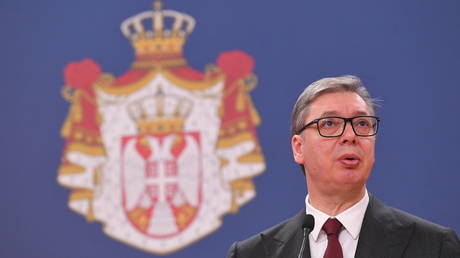
Brussels plans to launch massive ‘geoengineering’ interventions to deal with global warming, according to the news agency
The European Union is looking into technologies involving large-scale interventions into natural phenomena like sun rays or the atmosphere, as part of its new strategy for tackling climate change, Bloomberg reported on Monday, citing a draft document that might be made public later this week.
The paper Brussels is reportedly about to release is aimed at assessing the consequences of rapid global warming such as water or food scarcity, and the risks of them triggering new conflicts or mass migration waves, the outlet said. It will also feature an assessment of the potential for studying atmospheric re-engineering technologies and the dangers associated with them.
Such projects might range from deflecting the Sun’s rays or blocking them from reaching the Earth’s surface to changing the weather patterns, Bloomberg noted. The EU would like to invite international discussions on the matter as well as on potentially creating rules in this field.
“The EU will support international efforts to assess comprehensively the risks and uncertainties of climate interventions, including solar radiation modification,” says the document, which is still subject to change, according to Bloomberg.
The paper also admits that such technologies “introduce new risks to people and ecosystems, while they could also increase power imbalances between nations, spark conflicts, and raise a myriad of ethical, legal, governance and political issues.”
The geo-engineering option is considered amid fears that the international community might miss its target of limiting global warming to 1.5C (2.7F), Bloomberg noted, adding that the EU might turn to more radical options like spraying stratospheric aerosol to reduce the amount of sunlight reaching earth.
Bloomberg also noted that critics of geo-engineering have warned that such methods might involve unforeseen side effects like changes in rain patterns, without naming any names.




